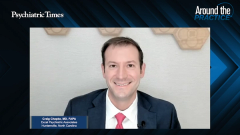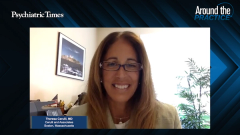
Diagnosis and Management of Adults ADHD Compared to Children
Experts in ADHD compare the diagnosis and management of ADHD in adults and children.
Episodes in this series

Stephen Faraone, PhD: Dr Cerulli, can you provide a brief overview of how diagnosis and management of ADHD may differ between pediatric and adult patients?
Theresa Cerulli, MD: The challenging word in that sentence is brief, but I will do my best, on this topic, let's start with the similarities with diagnosing and managing ADHD in pediatric and adult patients, because there are some similarities, certainly, and that's the clinical interview with a doctor, rating skills are still the gold standard, right, we don't have a blood test, we don't do MRIs, it's still us, as clinicians, that are the diagnostic tool, which is why I appreciate all of you listening to our call today, learning and understanding how to best assist our patients, because that is what we are here to do. Besides the clinical interviewing and rating skills, next, I want to mention that for kids, you'll see neuro-psychtesting done, that is not standard of care, it's nice when it's available, nice when you can get it covered through insurance, but it's sensitivity and specificity of using neuro-psychtesting to diagnose ADHD, it's not great, it's in the 60% plus percentile, so not necessary for the diagnosis of ADHD, but helpful in kids to at least look at the comorbid learning disabilities, which about 20, 25% of the time you will find learning disabilities that coexist with ADHD, you don't want to miss some opportunities for academic accommodation for those students. You see that, in pediatric, that is one of the differentiating points, though, with adult ADHD, we generally can't get neuro-psychtesting covered, we're not so much screening for learning disabilities in the adult population, when we're looking for the ADHD, you'll often not have that as something to access in the adult diagnostic workup, the neuro-psychtesting. Other similarities let's look at our oldy but goody DSM criteria, a lot of similarities, one of the differences when we went from DSM-IV to DSM-V in diagnosing childhood versus adults with ADHD was the number of symptom domains. For kids, now, for DSM-V you need 6 of the 9 inattentive symptoms and or 6 of the 9 hyperactive impulsive symptoms. For adults, defined as age 17 and up, interestingly, for ADHD, 17 years old and up, those patients, it's 5 of the 9 symptoms of inattention and, or 5 of the 9 symptoms of hyperactivity and impulsivity needed for the diagnosis, we loosened the criteria on the adult side. Challenges, I would say, in both kids and adults, are making the diagnosis, you really must screen for the comorbidities that both can present like ADHD when it's not, the comorbidities may themselves be causing inattentive problems and you could misdiagnose the ADHD when it's the depression, or sleep disorders, or anxiety causing the problem with attention, concentration. Additionally, you can have the comorbidities with the diagnosis of ADHD, you're screening for and really trying to tease out the symptomatology which may be indicative of both diagnosis, ADHD and the comorbidity. The complication, shifting up to the adults, besides the comorbidities are there with both kids and adults, in fact, about 75% of the time, if you're diagnosed with ADHD, you're going to have at least one comorbidity and the data shows 60% of the time you're going to have 2 or more comorbidities with you ADHD, that's kids and adults, the type of comorbidity may shift a bit, and this is where I want to emphasize the challenges with adult, diagnosing adult ADHD, the, some of the comorbidities may be things like substance abuse, you see that more, or worry more in adults than hopefully with our kiddos, right? And then also, the complex medical histories that many of our adults can present with, that certainly on the treatment side, can become very challenging, people that have problems with blood pressure, other cardiovascular diseases in adulthood, we want to be very careful diagnostic and on the treatment side.
Stephen Faraone, PhD: That's great, thank you.
Transcript edited for clarity
Newsletter
Receive trusted psychiatric news, expert analysis, and clinical insights — subscribe today to support your practice and your patients.












